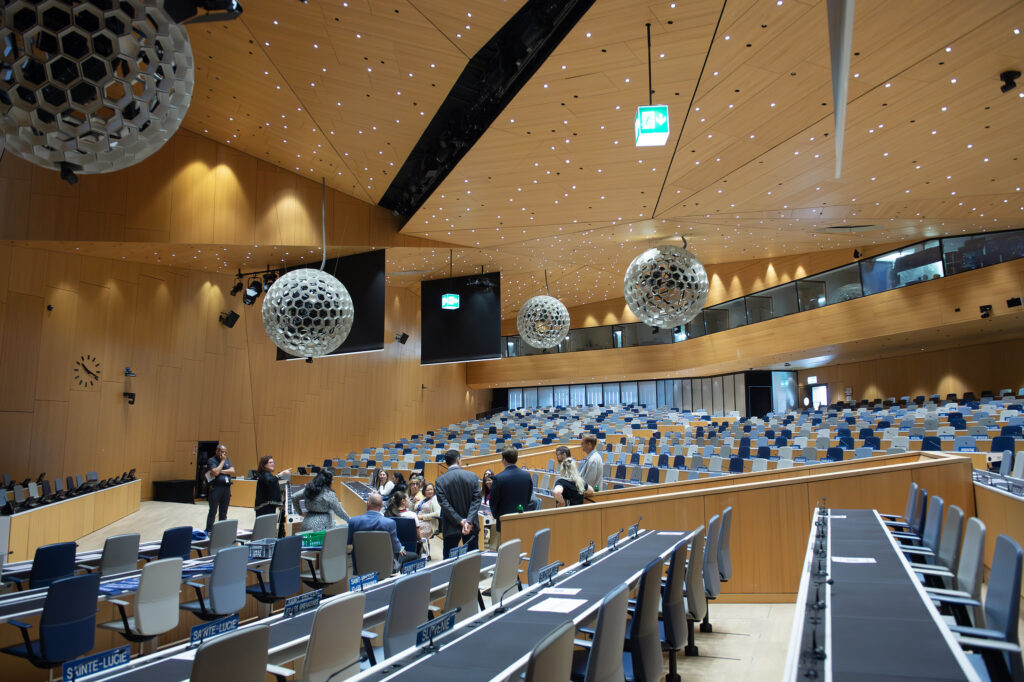This post was originally published on KEI Online by Thiru On 18 March 2025, the World Trade Organization (WTO) published a communication (IP/C/W/719) by Brazil, India, and Peru entitled, “Revising discussions on the relationship between the TRIPS Agreement and Convention on Biological Diversity“. Brazil, India, and Peru have called for the inclusion of a mandatory disclosure requirement in the TRIPS Agreement based on a 2011 proposal (TN/C/W/59) by Brazil, China, Colombia, Ecuador, India, Indonesia, Peru, Thailand, the ACP Group and the African Group in 2011 to amend Article 29 of the TRIPS Agreement. The paper makes no explicit reference to digital sequence information (DSI). While this topic was broached at the March 2025 TRIPS Council meeting, this topic will be addressed at the next TRIPS Council meeting (26-27 June 2025). In the chapeau of the March 2025 paper, the demandeurs (Brazil, India, and Peru) articulated the interplay between traditional medical knowledge, modern medicine, traditional and complementary medicine use, the misappropriation of genetic resources, intellectual property, and biopiracy: 2. A WTO-WIPO-WHO joint study of 2020 titled ‘Promoting Access to Medical Technologies and Innovation’ notes the profound influence of traditional medical knowledge on modern medicine. With 88% of WHO members acknowledging traditional and complementary medicine use, international trade in these products is growing rapidly. However, the study notes that this has come on the back of the rampant misappropriation of genetic resources (GR) and associated traditional knowledge (TK). Some prominent examples of biopiracy include neem (India), turmeric (India), kava (Pacific Islands-Fiji and Vanuatu), ayahuasca (Brazil), quinoa (Peru), and hoodia (South Africa). Assessing the economic loss to developing countries due to biopiracy is a complex task involving multiple factors, such as the loss of intellectual property (IP) rights, restricted access to genetic resources, negative impact on traditional industries, and discouragement of research and development in the country of origin. In relation to biodiversity, the co-sponsors of IP/C/W/719 quoted a WHO Global Report on Traditional and Complementary Medicine from 2019, “developing countries, especially those with rich biodiversity in Asia, Africa, and South America, supply approximately two-thirds of the plants used in western and global medical systems”. Furthermore, the demandeurs noted: While recent data is publicly unavailable, a 1999 report by the United Nations Development Program estimates that if a 2% royalty were charged on genetic resources developed by local innovators in the South, the North would owe over USD 300 million in unpaid royalties for farmers’ crop seeds and more than USD 5 billion in unpaid royalties for medicinal plants. In the 719 paper, Brazil, India, and Peru described the Convention on Biological Diversity (CBD) and the Nagoya Protocol as having a “significant shortcoming” noting that the CBD and Nagoya Protocol do not “link these requirements with the patent system, resulting in the grant of erroneous patents to biopiracy-based inventions and lack of enforcement of the PIC and ABS commitments, particularly in a transboundary context.” 4. The CBD (1992) marked the first step towards recognising the sovereign rights of states over their biological resources. It conditioned access to biological resources and associated traditional knowledge with prior informed consent (PIC) and access and benefit sharing (ABS) with local communities, who are the rightful holders of such knowledge. The Nagoya Protocol, which came into force in 2014, further developed the legal framework established under the CBD to operationalise the requirements of PIC and ABS. A significant shortcoming of the CBD and Nagoya Protocol is that it does not link these requirements with the patent system, resulting in the grant of erroneous patents to biopiracy-based inventions and lack of enforcement of the PIC and ABS commitments, particularly in a transboundary context. The 719 paper points to the WIPO Treaty on Intellectual Property, Genetic Resources and Associated Traditional Knowledge, adopted in May 2024, as the culmination of over two decades of work to address some of the shortcomings in the CBD and Nagoya Protocol. 6. The WIPO treaty requires patent applicants to disclose the source of the genetic resources and traditional knowledge on which their claimed invention is based. The disclosure requirement, if complied with by the applicant, would aid the patent office in conducting a prior art search. It would help prevent the patenting of inventions based on genetic resources and associated traditional knowledge that do not fulfil the requirements of novelty and inventiveness. Genetic resources and associated traditional knowledge obtained from one country are often used as a basis for seeking a patent in another. In such situations, the disclosure requirement would make the patent office the checkpoint to identify instances of transboundary utilisation of genetic resources and traditional knowledge. While hailing the WIPO Treaty on IP, Genetic Resources and Associated Traditional Knowledge, the 719 demandeurs are cognizant that the WIPO treaty “does not offer recourse to international dispute settlement if states fail to establish the disclosure requirement under their domestic patent systems”. The demandeurs call for the amending of the TRIPS Agreement to integrate the mandatory disclosure requirement into the WTO’s institutional architecture, including its binding dispute settlement system. 7. While a progressive instrument, the WIPO treaty could be further strengthened by integrating these commitments under the TRIPS Agreement. First, the WIPO treaty does not offer recourse to international dispute settlement if states fail to establish the disclosure requirement under their domestic patent systems. Second, the WIPO treaty does not address the requirements to obtain PIC under mutually agreed terms (MAT). Hence, even though the treaty introduces the disclosure requirement, it does not provide for compliance with the ABS requirements. The WIPO treaty shifts the burden to ensure compliance on the government agencies and local communities of the provider country, who must monitor published patent applications worldwide to ensure compliance and enforce ABS through PIC under MAT. Thus, amending the TRIPS Agreement to integrate the mandatory disclosure requirement could subject this commitment to the WTO’s legal framework. Further, the TRIPS Agreement could build on the WIPO treaty to require evidence of PIC and benefit-sharing arrangements as a prerequisite for patent grant or commercialization, thereby reinforcing the











